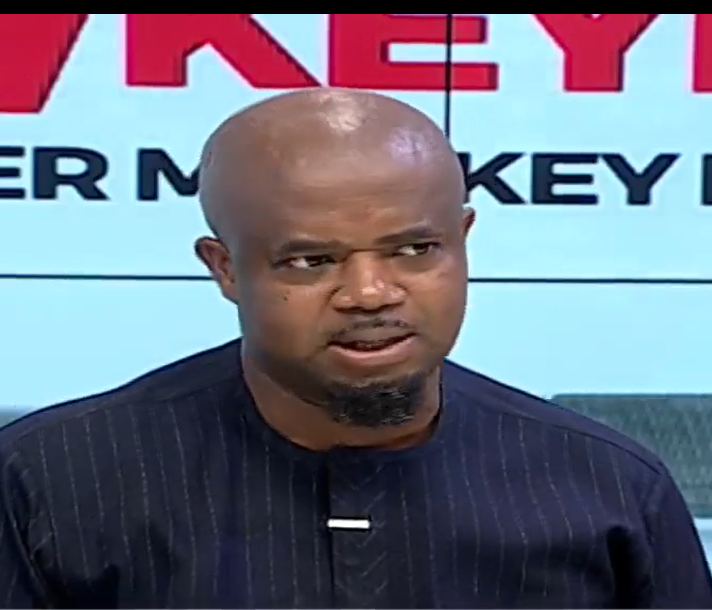Chief Executive Officer of the National Petroleum Authority (NPA) and private legal practitioner, Lawyer Godwin Edudzi Tamakloe, has described the legal action initiated by former Chief Justice Gertrude Torkornoo to halt the vetting of Justice Baffoe-Bonnie as the next Chief Justice as a clear case of “constitutional lawlessness”.
Speaking on The KeyPoints show on TV3 on Saturday, October 18, 2025, Tamakloe explained that the former Chief Justice’s decision to file for a judicial review in the High Court, challenging the work of the committee set up under Article 146 of the 1992 Constitution, amounts to an impermissible appeal in disguise.
According to him, Article 146 proceedings are constitutionally designed to be final and cannot be appealed or reviewed through ordinary judicial processes. He noted that the framers of Ghana’s Constitution intentionally excluded a right of appeal in such proceedings to safeguard the independence of the judiciary and maintain the confidential nature of impeachment hearings.
“What she is essentially doing is asking the High Court to sit in judgement over the Kwame Porman-led committee that investigated her. That is unconstitutional. That is constitutional lawlessness and must not be entertained,” Tamakloe declared.
He further explained that the grounds and reliefs contained in the former Chief Justice’s judicial review application reveal her disagreement with the findings and recommendations of the Article 146 committee. By seeking a High Court intervention, he argued, she is attempting to use the judicial review mechanism to achieve the same effect as an appeal—something explicitly not allowed by law.
Tamakloe also revisited an earlier debate during the period of Justice Torkornoo’s removal process. At the time, there were calls for her to be allowed to resign to preserve her entitlements, given her long service at the High Court, Court of Appeal, and Supreme Court.
However, he pointed out that the Supreme Court has previously ruled that once Article 146 proceedings have commenced, the subject of such proceedings cannot simply resign to escape the process.
“Once an Article 146 process commences, there is no option of resignation. The Supreme Court ruled on this long ago. To now attempt to relitigate findings of the committee through judicial review is nothing short of constitutional lawlessness,” he stressed.
He cited a past instance during the late President John Evans Atta Mills’ administration, where a High Court judge attempted to resign after an Article 146 committee had been set up against him. The Supreme Court held that the resignation could not be accepted, clarifying the binding nature of such proceedings.
Tamkloe stated that upon a careful review of the judicial review documents filed by the former Chief Justice, it was evident that she sought to have a High Court judge rehear the matter already concluded by the Article 146 committee.
“If you look at the grounds one and two and reliefs one, two, three, and four, it’s clear she’s saying the committee found her unfit and guilty of stated misbehaviour, but she thinks otherwise. That is not for the High Court to determine. Under the Constitution, only the Article 146 committee can make such a determination—not even the Supreme Court,” he explained.
He referenced the 1994 “Urban Case”—Ghana Bar Association vs. Attorney-General—where the Supreme Court ruled that no other legal process can be used to indirectly trigger or overturn Article 146 proceedings.
“As lawyers, we should know better. The Constitution protects Article 146 proceedings from being turned into a public theatre. If you take the committee’s work to open court, which is not in camera, you completely undermine the purpose of the provision,” Tamakloe warned.
He concluded that if the former Chief Justice’s application is allowed to stand, it would set a dangerous precedent that weakens the constitutional mechanisms for judicial accountability and creates room for individuals to judicially overturn disciplinary outcomes meant to be final.
“This is an attempt to rewrite the Constitution through legal ingenuity. But the framers were clear: there is no right of appeal envisaged under Article 146. What she’s doing is unconstitutional and amounts to constitutional lawlessness,” he reiterated.
Click the link Puretvonline.com | WhatsApp Channel to join the WhatsApp channel
GOT A STORY?
Contact/WhatsApp: +233243201960 or manuelnkansah33@gmail.com

